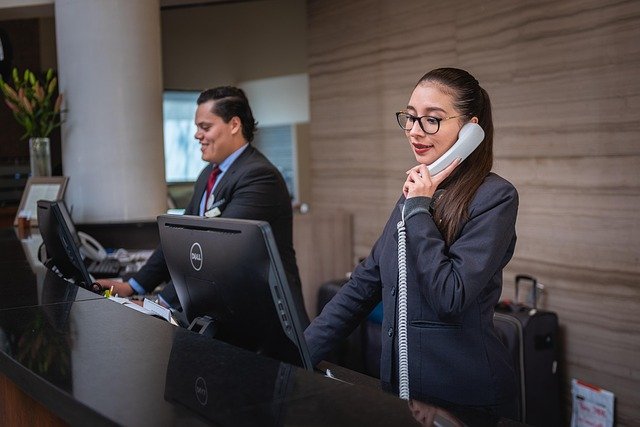Hotel Housekeeping Jobs in Japan: What to Expect and How They Work
Many people explore hotel housekeeping in Japan as a way to gain work experience while living abroad. These roles may offer a structured routine, manageable tasks, and a chance to learn about Japanese culture. Learn what to expect and how others approach this opportunity. Discover more in this article.

What are the typical duties of hotel housekeeping jobs in Japan?
Hotel housekeeping in Japan involves a range of responsibilities aimed at maintaining the cleanliness and orderliness of guest rooms and public areas. Typical duties include:
-
Making beds and changing linens
-
Cleaning bathrooms, including toilets, showers, and sinks
-
Vacuuming carpets and mopping floors
-
Dusting furniture and fixtures
-
Restocking amenities such as toiletries and towels
-
Reporting maintenance issues to the appropriate staff
Japanese hotels are known for their high standards of cleanliness and attention to detail, so housekeepers are expected to maintain these exacting standards in their work.
How do working conditions differ for housekeeping roles in Japan?
Working conditions for hotel housekeeping jobs in Japan may differ from what you might expect in other countries:
-
Work hours: Typical shifts are 8 hours long, often starting early in the morning.
-
Uniform: Most hotels provide a uniform, which must be worn during work hours.
-
Language: While some knowledge of Japanese is beneficial, many hotels hiring foreign staff offer English language support.
-
Training: Extensive training is often provided to ensure compliance with Japanese hospitality standards.
-
Team dynamics: Japanese work culture emphasizes teamwork and harmony, which extends to housekeeping roles.
It’s important to note that the work can be physically demanding, requiring stamina and attention to detail throughout long shifts.
What are the requirements for foreigners seeking hotel staff jobs in Japan?
To work in hotel housekeeping in Japan as a foreigner, you’ll typically need to meet the following requirements:
-
Valid work visa: Most commonly, this would be a Working Holiday Visa for eligible countries or a specified skilled worker visa.
-
Basic Japanese language skills: While not always mandatory, basic communication skills are highly valued.
-
Physical fitness: The job involves standing for long periods and repetitive motions.
-
Attention to detail: Japanese hospitality standards are high, requiring meticulous work.
-
Cultural sensitivity: Understanding and respecting Japanese customs is crucial.
-
Flexibility: Willingness to work varying shifts, including weekends and holidays.
Some hotels may have additional requirements, such as previous hospitality experience or specific education levels.
How can housekeeping jobs serve as a way to live in Japan?
Hotel housekeeping jobs can be an excellent gateway for those looking to live and work in Japan:
-
Visa sponsorship: Some hotels offer visa sponsorship, making it easier to obtain legal work status.
-
Language immersion: Daily interactions with colleagues and guests provide opportunities to improve Japanese language skills.
-
Cultural experience: Working in a Japanese environment offers insights into local customs and work culture.
-
Stable income: While not high-paying, these jobs often provide a steady income and sometimes include accommodation.
-
Networking: The hospitality industry can open doors to other opportunities within Japan.
-
Travel opportunities: Some hotel chains offer the chance to work in different locations across Japan.
These roles can serve as a stepping stone for those looking to transition into other careers or simply experience life in Japan for a period.
What can you expect in terms of salary and benefits for housekeeping jobs in Japan?
| Benefit Type | Description | Typical Range |
|---|---|---|
| Salary | Monthly wage for full-time work | ¥150,000 - ¥200,000 |
| Accommodation | Provided or subsidized housing | Varies by employer |
| Health Insurance | National Health Insurance coverage | Mandatory for all employees |
| Transportation | Commuting allowance | Partial or full reimbursement |
| Meals | Staff cafeteria or meal allowance | Often provided at reduced cost |
| Bonuses | Bi-annual bonuses (not guaranteed) | 1-2 months’ salary per year |
Prices, rates, or cost estimates mentioned in this article are based on the latest available information but may change over time. Independent research is advised before making financial decisions.
It’s important to note that while the base salary for housekeeping jobs may seem low by some international standards, the cost of living can be managed with provided benefits. Many hotels offer accommodation or housing allowances, which can significantly reduce living expenses. Additionally, the opportunity to save on daily costs like transportation and meals can make these positions financially viable for many foreigners.
How does working in hospitality in Japan compare to other countries?
Working in hospitality in Japan offers a unique experience compared to many other countries:
-
Service standards: Japan’s omotenashi (hospitality) culture sets exceptionally high standards for customer service.
-
Efficiency: Japanese hotels often employ advanced technologies and efficient systems to streamline work processes.
-
Teamwork: There’s a strong emphasis on collective effort and maintaining group harmony.
-
Punctuality: Timeliness is highly valued, with strict adherence to schedules.
-
Career progression: While starting in housekeeping, there may be opportunities to advance within the hospitality industry.
-
Work-life balance: Japan is making efforts to improve work-life balance, though long hours can still be common in the hospitality sector.
The experience gained in Japanese hospitality can be valuable for future career prospects, both within Japan and internationally.
Hotel housekeeping jobs in Japan offer a unique blend of cultural immersion, work experience, and the opportunity to live in a fascinating country. While the work can be demanding, it provides a structured way to experience Japanese culture from the inside. For those willing to embrace the challenges and opportunities, these roles can be an excellent first step in a Japanese adventure or a longer-term career in hospitality.




